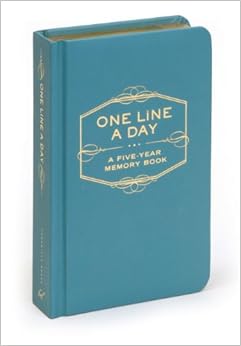“To eat bread without hope is still slowly to starve to death.”
-Pearl S. Buck
After living in Nicaragua for four years, I (Cassie) have thought and reflected often about the decisions that poor people make. I have never wrote about it in this space because it is such a sensitive topic. But today I have the courage to write. I ask for your patience as this is still a work in progress. The “poor” that I am referencing in this essay are those with economic challenges.
As I use the term poor, I am referring to material poverty. According to the World Bank, the average gross national income for a Nicaraguan is $1,830 USD. Nicaragua is the second-poorest country after Haiti in the Western Hemisphere, with 42.5% of the population living below the poverty line and the majority of the population living on less than $2 per day.
It is common to hear value judgments about poor people, especially from foreigners who are visiting. The statements often revolve around what the poor own and why they have chosen to own those things. Examples that I have heard include cable television, smart phones, fancy clothing, you name it, it has most likely been said. I myself, cannot deny that I have had these thoughts as well. It can be hard to understand why my neighbor, who is a new dad, recently went out and bought a motorcycle, when just a week before his girlfriend came to me and asked me for money to help buy formula for their baby. It can be extremely difficult to make sense of these decisions.
Back in 2005, when I lived in South Africa, I was introduced to the work of Ruby Payne. In her book, A Framework for Understanding Poverty, she provides practical guidance and understanding for why people make the choices that they do. After reading this book, I began to understand the differences in thought processes and decision making between people who are living in poverty, those who are middle class and the wealthy. I began to better understand the rules, emotions and knowledge that go into ones decision making. This understanding became both more profound and complex as I went to graduate school and in my practice as a Social Worker interacting with populations from all income groups.
This judgment of the poor often goes beyond material purchases and decision making. For the past for years, I have witnessed child abuse on a daily basis. Each and every day from my very own home, I hear physical, verbal and emotional abuse. Again, I have chosen not to write about this here in this space because it is such a delicate topic. I have done my best to build relationships with my neighbors, to provide them with education on safe child rearing, to model a different way to interact with their children, I have even confronted them in the middle of the event, and yet the abuse continues. In these moments, I have to remind myself, why would I expect anything different? This is the kind of authoritative parenting that was modeled to them. Childhood experts around the world have long noted that poor families often have a more authoritarian childrearing style than middle-class families. And just to clarify, this is true not only in Nicaragua, but around the world.
To add to the complexity, an Urban Institute Study found that 55 percent of babies in the United States who are living in poverty are raised by mothers who show symptoms of depression. The problem is that the struggling single mom, who has mental health issues, who is living in poverty is often stressed and busy, focused on survival, and she doesn’t realize or even have the opportunity to realize that there may be a better way to raise her children. Beyond that, it is hard for a parent to know to do something if it wasn’t done for herself when she was a child.
Poor people often become depressed because it is an extremely stressful way to live. When we are stressed, we produce more cortisol. Cortisol matters because in the prefrontal cortex of the brain, it can interfere with impulse control, and that may be the reason why people under stress sometimes develop self-destructive behaviors.
While reading Nicholas Kristoff’s and Sharyl WuDunn’s most recent book, A Path Appears: Transforming Lives, Creating Opportunities, I continued to deepen my understanding about why the poor do what they do and how this impacts the field of aid and development around the world.
They write, “Americans worry that donations accomplish nothing because people are poor as a result of self-destructive behaviors, from substance abuse to laziness. In this view, helping the poor is like putting a dollar bill into a homeless drug addict’s tin can and thinking it will go for food. The blunt truth is that this cynical view has a certain foundation: self-destructive behaviors are indeed a factor in poverty at home and abroad. We must acknowledge all the underlying pathologies, including the human capacity to make bad choices. But these issues are far more complex than cynics believe, and the solution is not just to scold the poor. Humans anywhere in the world can be locked in a “poverty trap” of despair and sometimes clinical depression. One way of making a difference is to provide a ray of hope. If we were facing eviction and watching our child die of malaria or be expelled from school for nonpayment of school fees, we might seek comfort from a drink, too. Embedded in the human psyche is a yearning for fun, entertainment and companionship, if only as short-term relief from long-term misery. When in poverty, so many people feel locked in a trajectory of hopelessness, and they sometimes respond in ways that make that hopelessness self-fulfilling and transmit it to the next generation.”
After ten years of interacting professionally on a regular basis with people living in poverty, both in the United States and in the developing world, I have only come to the conclusion that there is a lot of complexity. At times this can cause confusion, it can be confusing to know how I should respond individually to a request or to something that I witness. After a long day at work, riding public transportation, putting up with the hot sun and navigating the complexity of life here, I do not always have the compassionate thoughts towards my neighbors that I would like to have. However, I am striving to be more patient, compassionate and understanding each and every day.
How can I help the poor? I can help them to expand their view of their own capabilities. I can affirm them in their giftings. I can help them to develop goals. I can encourage them to continue in their education. I will always share a glass of water or a plate of food, and sometimes I will give them money. Each and every day I have to be open and listening to the complexity.
I will conclude with a quote from Kristoff and WuDunn:
“Let’s remember that the difference between being surrounded by a loving family or being homeless on a street is determined not just by our own level of virtue or self-discipline, but also by an inextricable mix of luck, brain chemistry, child rearing, genetics, and outside help. Let’s recognize that success in life is a reflection not only of enterprise and willpower but also of chance and early upbringing, and that compassion isn’t a sign of weakness but a mark of civilization.”


















